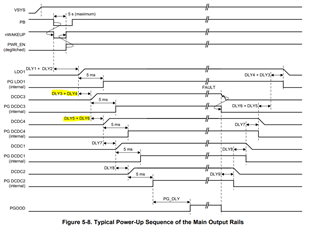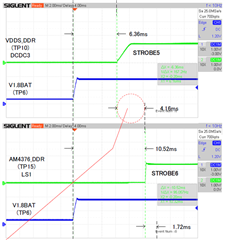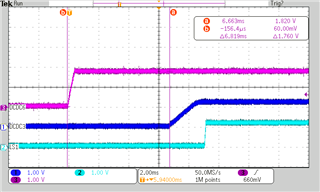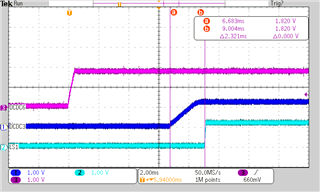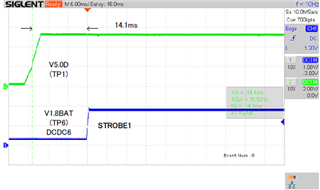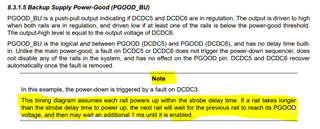Other Parts Discussed in Thread: TPS65218EVM-100
When replaced from TPS65218B1 to TPS65218D0 without changing the circuit and registers, there was a difference in the DCDC3 sequence.
The STROBE delay setting remains at the default 2ms.
The delay time of the TPS65218B1 (current product) is about 2.152ms, while that of the TPS65218D0 is about 4.16ms.
Is this an improvement change from B1 to D0?
Or are there other factors?
Please refer below for waveforms.
※V1.8BAT (TP6): DCDC6
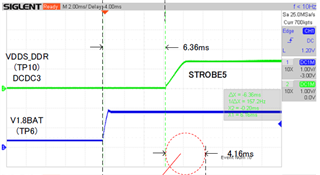
For reference, the register dump is below.
・TPS65218D0
0x00: 05 10 00 00 00 28 00 00
0x08: 00 00 00 00 00 00 00 00
0x10: 00 3f 13 4c c0 00 19 29
0x18: 92 b2 06 1f 00 00 00 00
0x20: 00 00 98 75 12 63 03
・TPS65218B1
0x00: 03 10 00 00 00 28 00 00
0x08: 00 00 00 00 00 00 00 00
0x10: 00 3f 13 48 c0 00 19 29
0x18: 92 b2 06 1f 00 00 00 00
0x20: 00 00 98 75 12 63 03
Best regards,
Satoshi


